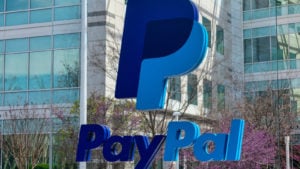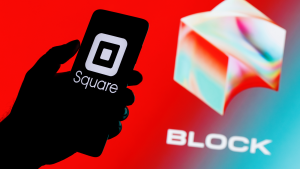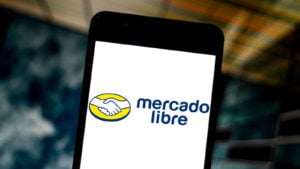The 3 Most Undervalued Fintech Stocks to Buy Now: July 2023
Innovation breeds opportunity across all industries. That’s why fintech stocks are so attractive. They promise to reshape the traditional financial, banking, and payments landscape creating value in the process.
Investors are well aware that the fintech space is growing rapidly. They understand that compound annual growth rates in the sector will continue in the double digits for years to come. That will create riches for those invested in the space.
Traditional finance is undergoing a seismic shift. Whether due to blockchain technology or fintech advancements, innovation is going to advance. Investing in fintech firms is one of the easiest ways to capture growth for yourself.
PayPal (PYPL)

PayPal (NASDAQ:PYPL) is one of the early digital payments companies and stocks on the scene. It was certainly one of the first firms most readers will remember that changed banking and payments. Many will have used it simply because the company is so well-known and pervasive.
Aside from PayPal’s positioning, one of the main reasons to consider owning it currently is the fact that the company should soon be repurchasing its own stock. The company anticipates that it will repurchase $5 billion worth of shares this year with proceeds from the sale of 40 billion EUR worth of BNPL loan receivables.
PayPal reduces liabilities on its balance sheet by 40 billion EUR becoming healthier in the process and investors theoretically now hold more valuable shares. The deal is expected to increase PayPal’s buybacks to $5 billion with an additional $1 billion allocated to buybacks from the deal.
PayPal has been trending upward since the weeks preceding the news.
Block (SQ)

Block (NYSE:SQ) is an undervalued stock due to a combination of its current footprint and the path it is electing to focus on.
Block is one of the top-5 largest fintech firms globally and built its name first through point-of-sale kiosks and later through other payment forms. The company developed Cash App which rapidly became its most important product. Cash App is intimately connected to the rise of Bitcoin which has contributed heavily to its revenues. Cash App has a lot of functionality, too much to list here, but the long and short of it is that Block has built itself into a massively important fintech firm.
The company has repeatedly shown that it understands customers’ pain points. It builds appropriate solutions that address latent demand within the payments space. One of its next targets is the underbanked global south. Banking services like remittance are very important to the developing world but don’t exist in the way we are used to in the U.S. The spread of the internet has changed that and Block believes that by following the high-growth areas of internet penetration it can open a new market. That’s the so-called global south and Block has a great chance of capturing a significant share of the market.
MercadoLibre (MELI)

MercadoLibre (NASDAQ:MELI) is primarily known as an ecommerce stock and company that has carved out a strong position in Latin America.
However, MercadoLibre’s dominance in Latin American ecommerce belies its significant position as a fintech firm in the region. It is as much a fintech story as it is an ecommerce success story. MercadoPago is the service that allows platform users to pay for things on its ecommerce site.
It began as a payments system for the unbaked population in Argentina way back in 2003. The platform’s services currently includes debit card accounts, QR code payments, and payment between merchants and individuals.
It continues to grow extremely quickly. During the most recent quarter, MercadoLibre’s fintech business grew by 96% based on total payment volume. The firm offers more traditional fintech products and services including POS systems as well. However, the overall takeaway here is that MercadoLibre is growing quickly as an ecommerce firm and a fintech firm, with the latter aspect too often overlooked.
On the date of publication, Alex Sirois did not have (either directly or indirectly) any positions in the securities mentioned in this article. The opinions expressed in this article are those of the writer, subject to the InvestorPlace.com Publishing Guidelines.

